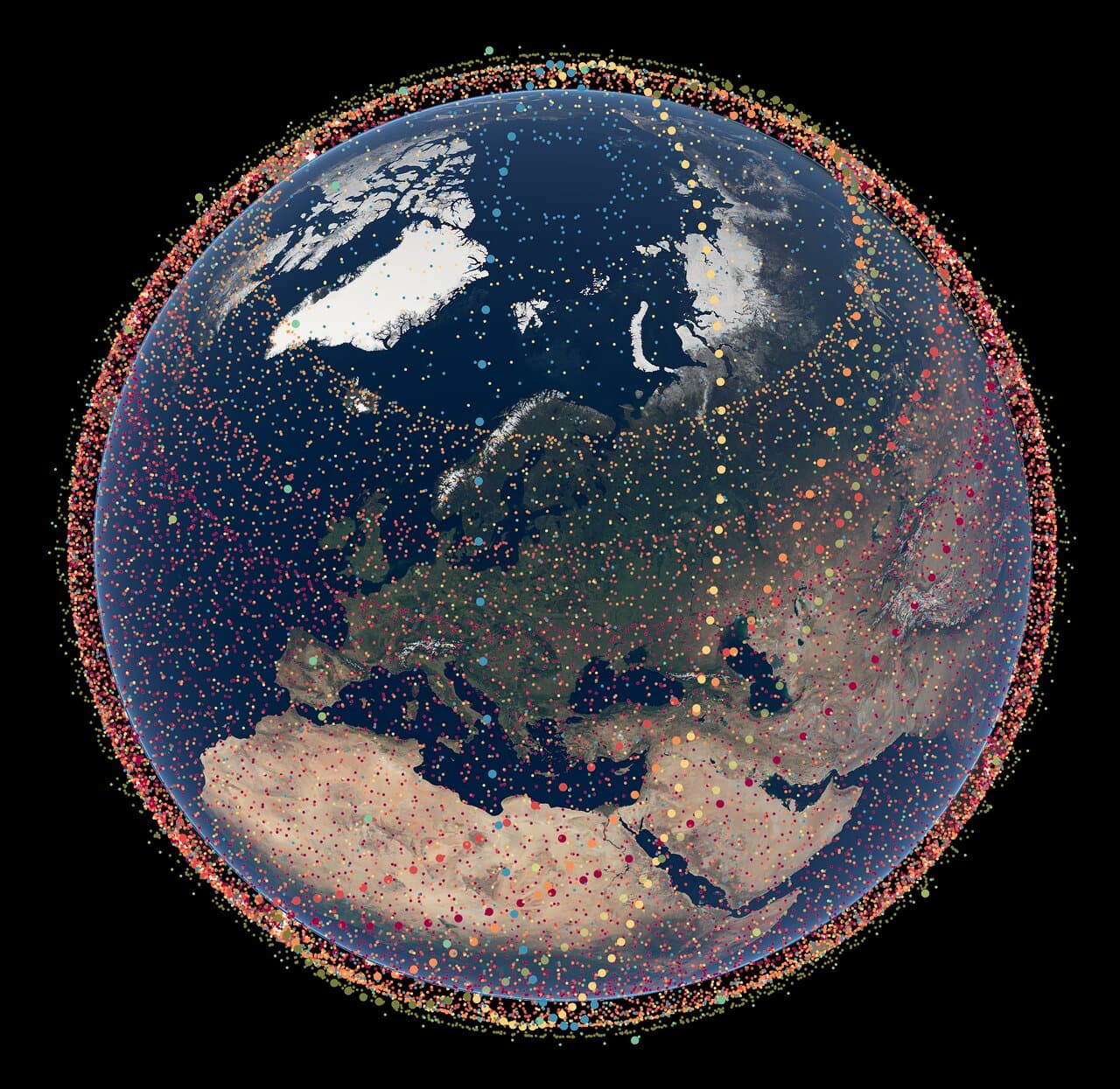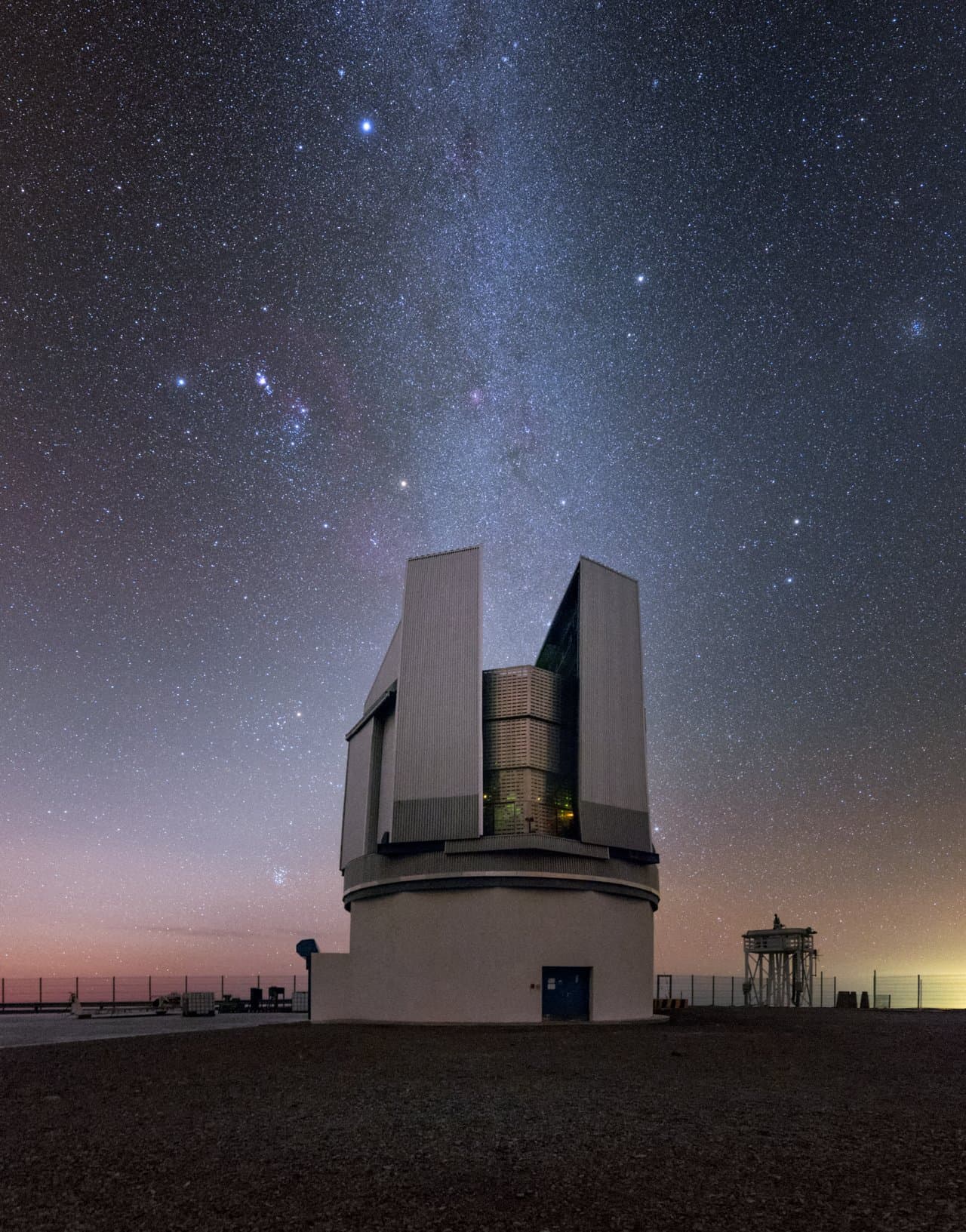
Dark and Quiet Skies
Dark and Quiet Skies
Dark and Quiet Skies is a global theme that raises awareness about the urgent need to preserve our night skies, both dark and quiet. While these two elements are closely connected, they represent different challenges.
Protecting dark skies means reducing artificial light at night across the electromagnetic spectrum through public policy, legal frameworks, community activism, and education. More recently, dark sky protection has also included the protection of the night sky from optical and infrared impacts (such as trails seen in images) resulting from the growing number of satellites in Low Earth Orbit.

Gallery: Dark and Quiet Skies
Content
Main focus
By preserving our quiet skies, we guard against the negative impact of satellite constellations on ground-based optical and radio astronomy. This is the main focus of our partner, the IAU Centre for the Protection of the Dark and Quiet Sky from Satellite Constellation Interference (CPS).
Through this initiative, we invite everyone to learn about the cultural, environmental, and scientific importance of dark and quiet skies—not only for astronomy, but for human well-being and the health of ecosystems.

Panel Discussion
Protecting Our Dark Skies – Involving policy makers in the defence of the night sky
This event is the first in a series of discussions focused on engaging with policymakers to protect the night sky. Bringing together experts in astronomy, environmental policy, and public advocacy, the panel will explore how dark and quiet skies can be preserved through effective, collaborative action. As light pollution and satellite interference continue to increase, this conversation aims to highlight the cultural, ecological, and scientific value of the night—and the policy solutions that can safeguard it for future generations.

Join us in protecting the night sky for science, for nature, and for future generations.
Plan your own Dark and Quiet skies event
- Planning your own event on light pollution abatement and dark sky protection?
- Download our set of graphics
- Maybe you’re planning a star party for the people in your neighbourhood or a mobile planetarium show with a local astronomy club.
- Whatever your plans are, share them with us in our Events Calendar and become a part of the OAO community!
- Register your event and be part of our international astronomy community.

International events: Global Light Pollution Initiatives Survey
We are gathering information about how countries around the world approach the fight against light pollution. In this survey, we ask you to provide some brief information about initiatives happening in your country (either led by you or someone else) and provide practical ways people can get involved in this effort.
This could include changing their light bulbs to warm LEDs, signing a petition, participating in a town hall, or joining a lobbying group -- whatever you think would be most relevant for your community.
We will use this information as part of a global resource on light pollution and as a way to promote global initiatives to protect our dark and quiet skies.

International events: International Dark Sky Week

Program: Globe@Night Citizen Science Campaign
The IAU OAO proudly endorses the monthly Globe@Night citizen science campaign. This project gathers data from volunteer observers to track the impact of light pollution over time. Everyone is encouraged to contribute to this campaign. All you need is your eyes and an internet connection.
Start and end dates for each monthly observing period will be shared on the IAU OAO Facebook.

Program: Globe at Night - Sky Brightness Monitoring Network (GaN-MN)

More Information
All events must respect the general guidelines of the IAU Global Project and Themes, which promote the key role of astronomy for the betterment of science and society through collaboration and with a spirit of respect, tolerance, and peace.
If you need to change your events already on the calendar, please email the IAU Office for Astronomy Outreach Team via public@...Click to show with the subject line “Dark and Quiet Skies Calendar 2026 - Update”.If you cannot submit through this form, please email the IAU Office for Astronomy Outreach team via public@...Click to show with the subject line “Dark and Quiet Skies Calendar 2026 - Update”.

.jpg&w=3840&q=75)

